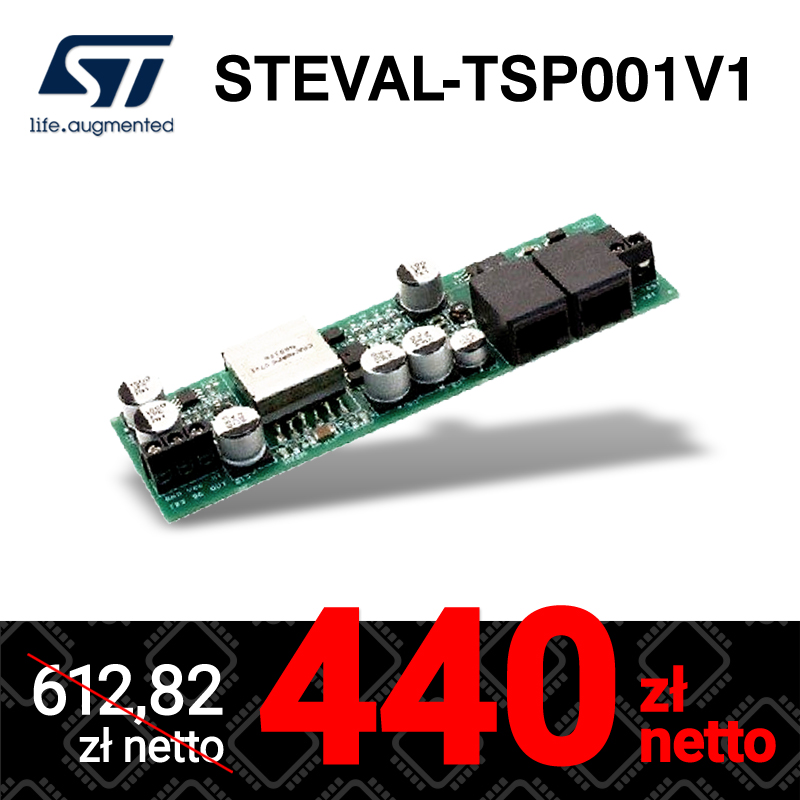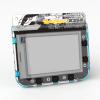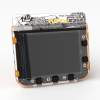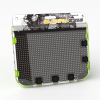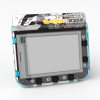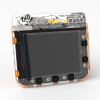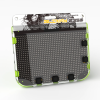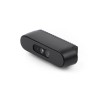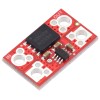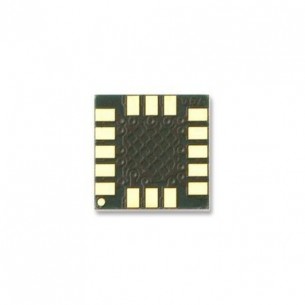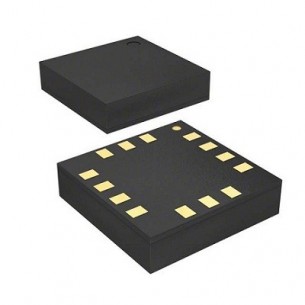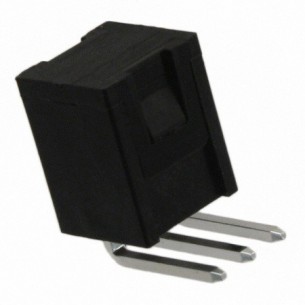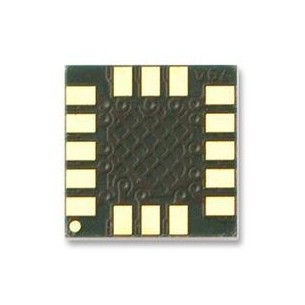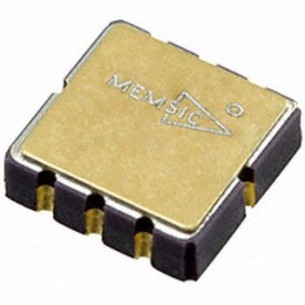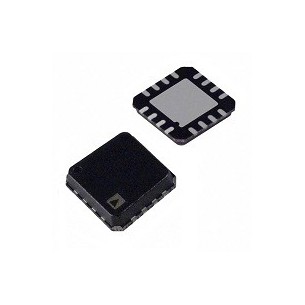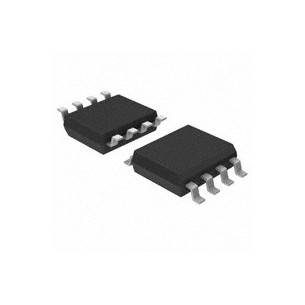Products
Categories
- Main categories
-
- 3D PRINTING
- ARDUINO
- AUTOMATION
- BOOKS
- CYBERSECURITY
- EDUCATION
- ELECTRONICS
- Cables
- Cameras and accessories
- Communication
- Conductive materials
- Connectors
- ARK connectors (Terminal Block)
- Banana connectors
- Coaxial connectors (RF)
- Connectors
- Crocodile clip
- D-Sub drawer connectors
- DC power connectors
- FFC/FPC ZIF connectors
- Goldpin connectors
- IDC connectors
- JACK connectors
- JST connectors
- Jumpers
- Memory cards slots
- Other connectors
- Pogo pin
- Quick couplers
- RJ45 connectors
- Slip ring connector
- Supports
- USB connectors
- USB PD Adapters for Laptops
- WF connectors
- Cooling
- Displays
- Electronic modules
- A/D and D/A converters
- Audio
- Barcode readers
- CAN converters
- Converters USB - UART / RS232
- Cryptographic module
- Data logger
- DDS/PLL generators
- Digital potentiometers
- Encoders
- Expanders of the I/O
- Fingerprint readers
- Galvanic isolation modules
- HMI modules
- Image and video
- JTAG accessories
- Keyboards, buttons
- LED drivers
- Memory card readers
- Memory modules
- Modules with power outputs
- Motor controllers
- Power modules
- Protection modules
- RS485 converters
- RTC modules
- Servo Controllers
- TSOP infrared receivers
- USB Converters - I2C / 1-Wire / SPI
- Voltage converters
- Gadgets
- GPS
- Intelligent clothes
- LED - diodes, displays, stripes
- Luminous wires and accessories
- Machine vission (MV)
- Memory cards and other data storages
- Passive elements
- PC accessories
- Printers
- Programatory czasowe
- Prototype boards
- Relays
- Semiconductors
- A/C converters (ADC)
- Analog systems
- Audio systems
- Bridge rectifiers
- Button
- D/A Converters (DAC)
- DDS synthesizers
- Digital circuits
- Diodes
- Drivers of motors
- DSP microprocessors
- Energy counters
- Energy harvesting
- ESD security
- IGBT drivers and bridges
- Interface systems
- LED drivers
- Logic converters
- Memory
- Microcontrollers
- Optotriacs and optocouplers
- Other
- PLL generators
- Power systems
- Programmable systems
- Resetting systems
- RF systems
- RTC systems
- Sensors
- SoC systems
- Timery
- Touch sensors
- Transistors
- Sensors
- Accelerometers
- Air humidity sensors
- Air quality sensors
- Current sensors
- Distance sensors
- Flow sensors
- Gas sensors
- Gyroscopes
- Hall sensors
- Humidity sensors
- Infrared sensors
- Laser scanner
- Light and color sensors
- Liquid level sensors
- Magnetic sensors (compasses)
- Medical sensors
- Motion sensors
- PH sensors
- Position sensors
- Pressure sensors
- Pressure sensors
- Reflection sensors
- Sensors 6DOF/9DOF/10DOF
- Sensors of liquid quality
- Temperature sensors
- Vibration sensors
- Sound transducers
- Switches and buttons
- Cables
- FPGA DEVELOPMENT KITS
- MEASURING DEVICES
- Anemometers
- Cable testers
- Distance measurement
- Electronic loads
- Generators
- Insulation resistance meters
- LCR meters
- Logic analyzers
- Measures and calipers
- Multimeters
- Network analyzers
- Oscilloscopes
- Other meters
- Panel meters
- Radiation detectors
- Sound meters
- Temperature measurement
- Testery USB
- Voltage indicator
- Wattmeters
- Weights
- MECHANICS
- MINICOMPUTERS (SBC)
- POWER
- RASPBERRY PI
- Accessories for Raspberry Pi
- Audio video cables for Raspberry Pi
- Case Raspberry Pi
- Cooling for Raspberry Pi
- Displays for Raspberry Pi
- Extension modules for Raspberry Pi
- Memory cards for Raspberry Pi
- Power for Raspberry Pi
- Raspberry Pi 3 model A+
- Raspberry Pi 3 model B
- Raspberry Pi 3 model B+
- Raspberry Pi 4 model B
- Raspberry Pi 400
- Raspberry Pi 5
- Raspberry Pi 500
- Raspberry Pi cameras
- Raspberry Pi Compute Module
- Raspberry Pi model A/ B+/2
- Raspberry Pi Pico
- Raspberry Pi prototyping
- Raspberry Pi Zero
- Raspberry Pi Zero 2 W
- RETIRED PRODUCTS
- SALE
- STARTER KITS, PROGRAMMERS, MODULES
- Atmel SAM
- Atmel Xplain
- AVR
- Coral
- DFRobot FireBeetle
- ESP32
- ESP8266
- Feather / Thing Plus
- Freedom (Kinetis)
- M5Stack
- Micro:bit
- Nordic nRF
- Other development kits
- Particle Photon
- Peripheral modules
- PIC
- Raspberry Pi RP2040
- RFID
- RISC-V
- Seeed Studio LinkIt
- Segger programmers
- SOFTWARE
- Sparkfun MicroMod
- STM32
- STM32 Discovery
- STM32 MP1
- STM32 Nucleo boards
- STM8
- Teensy
- Universal programmers
- WRTNode
- XIAO/Qt PY
- Atmel SAM
- WORKSHOP
- Adhesives for hot glue guns
- Chemistry
- Agents for securing electronics
- Cleaning and preserving agents
- Compressed air
- Conductive paints and varnishes
- Distilled water
- Etcher
- Freezing
- Gas for lighters and burners
- Isopropyl alcohol (IPA)
- Label removers
- Lubricants, oils
- Pastes and adhesives thermally conductive
- PCB cleaning products
- Thermopads - thermally conductive tapes
- CNC milling machines
- Crimping tools
- Dispensing needles
- Gluers
- Glues
- Heat-shrink tubing
- Insulation strippers
- Knives
- Laboratory power supplies
- Microscopes
- Mini drills and grindrers
- Organizers
- Personal protection (OHS)
- Power tools
- Sandpapers
- Scissors
- Soldering
- Antistatic mats and accessories (ESD)
- BGA balls
- BGA rework stations
- Brushes and ESD brushes
- Desoldering Wick
- Handles, magnifiers
- Heat guns
- Heaters and soldering irons
- Laminates
- Portable soldering irons
- Silicone Soldering Mats
- SMD Accessories
- Soldering accessories
- Soldering chemistry
- Soldering irons
- Soldering pastes
- Soldering pots
- Soldering stations
- Soldering tips
- Sponges and cleaners
- Stand for soldering irons
- Tin
- Tin extractors
- Ultrasonic cleaners
- Tapes (aluminum, kapton, copper, insulating)
- Tools
- Tweezers
- Vices
- Workshop lighting
- 3D PRINTING
New products
New products New products
Category: Positions
Precise Position Sensors – The Key to Modern Automation
In the world of modern automation and robotics, precision and reliability are crucial. Position sensors, also known as position sensors, play a fundamental role here. They enable precise control of the position and movement of various mechanical and electronic components. These advanced devices, including semiconductor position identification sensors and intelligent position sensors, ensure not only high precision but also reliability in challenging working conditions. Intelligent position sensors additionally offer analysis and communication functions, allowing their integration with modern management and automation systems. They offer a wide range of applications – from simple household devices to complex industrial systems.
There are 7 products.
Intelligent Motion-Sensing Platform, LGA16, Freescale, RoHS
No product available!
Magnetic Displacement Sensors, SOIC8, Honeywell Microelectronics & Precision Sensors, RoHS
No product available!
Diversity of Position Sensors
Position sensors come in various forms and technologies. They can be divided into several main categories, depending on the technology used and the measurement method. The most popular types include optical, magnetic, and inductive sensors. Each type of sensor has its unique features and applications, allowing for their wide use in various industries. Optical position sensors operate on the principle of detecting reflected or interrupted light by an object, enabling very precise measurements. Magnetic sensors use changes in the magnetic field, making them suitable for harsh environments where contamination may occur. Inductive position sensors, on the other hand, are reliable and durable, ideal for industrial applications.
Applications in Industry and Automation
In industry, position sensors are an indispensable element of machines and production lines. They enable precise control of production processes, movement monitoring, and positioning of elements. Thanks to them, it is possible to increase production efficiency and accuracy, which translates into higher product quality and lower operational costs. Position sensors find applications in many industrial sectors, from automotive and aviation to electronics manufacturing. In warehouse automation systems, these sensors enable precise positioning of robots and AGVs, increasing operational efficiency and reducing the risk of errors.
Innovations in Position Sensor Technology
Technological progress in the field of position sensors is constantly evolving. Semiconductor position identification sensors utilize the latest advancements in material engineering and electronics, allowing for device miniaturization and increased reliability and precision. Modern sensors are more resistant to interference and adverse environmental conditions, making them an ideal solution for the most demanding applications. Intelligent position sensors, equipped with advanced algorithms and communication capabilities, allow for remote monitoring and diagnostics, significantly increasing the efficiency and safety of automation systems.
The Future of Position Sensors
The development of the Internet of Things (IoT) and increasingly advanced industrial automation systems pose new challenges for position sensor technology. The future of these devices lies in integration with intelligent management systems, enabling even more precise monitoring and control of processes. Innovations in materials and production technologies will be crucial for further development and application of position sensors in various fields. New solutions, such as contactless position sensors, offer even greater reliability and durability, eliminating issues related to mechanical wear. These sensors will become increasingly integrated with AI systems, allowing for even more precise and autonomous operations. Position sensors are not just technology – they are the foundation of modern automation, contributing to the creation of more advanced, precise, and efficient systems. Thanks to them, the future of automation and robotics is becoming more precise and intelligent, bringing benefits both in the industrial scale and everyday life. Explore the wide range of products in the position sensor category and discover how they can transform your projects.

